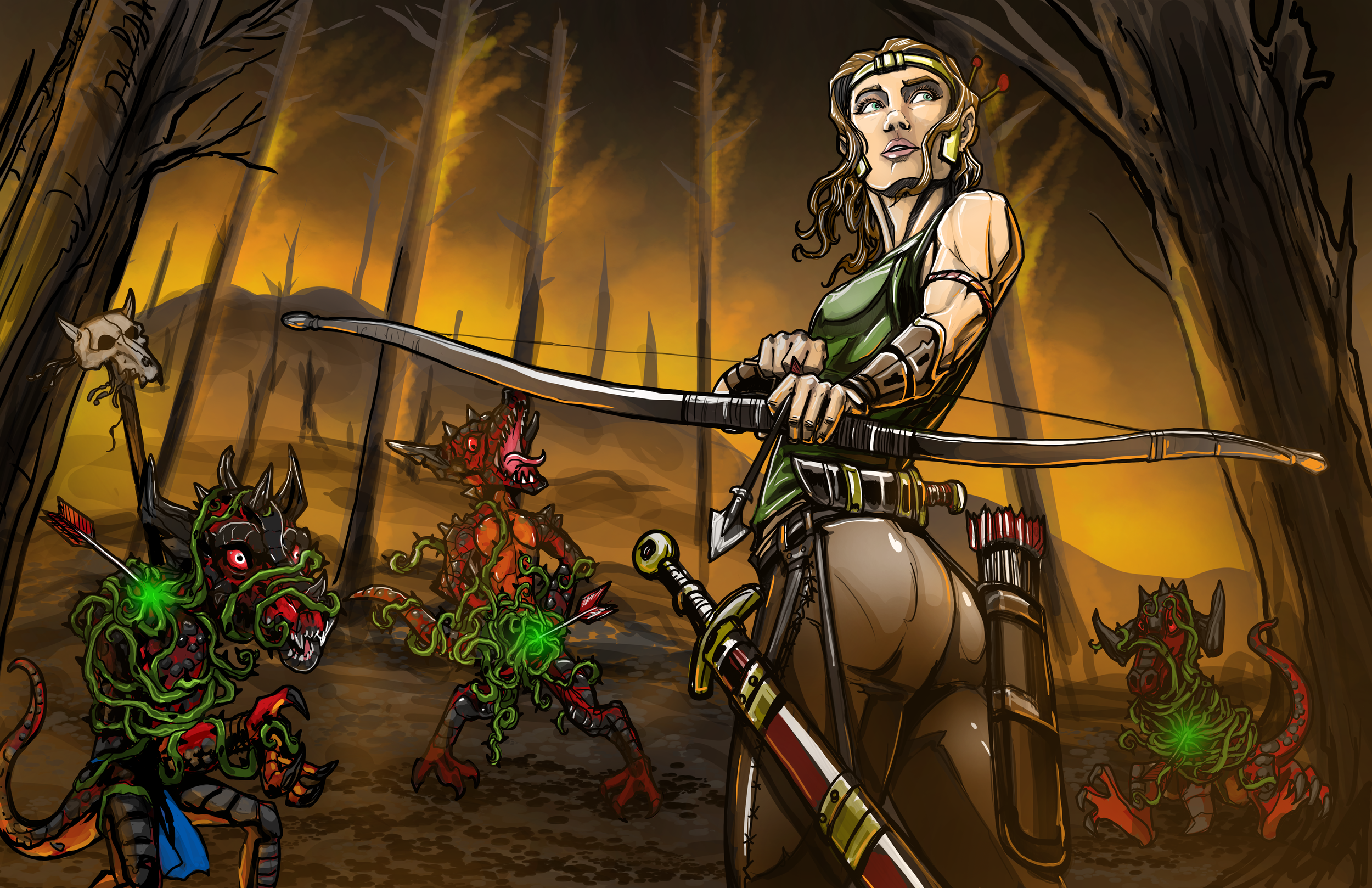D&D 5e is not a survivalist game, and doesn’t work as one without heavy modification. That being said, this skill can still be extremely vital to a party’s success. It is a bit campaign dependent however, so let’s try to determine when will be the right time to put this on your sheet.
Read MoreComplete Guide to the Stealth Skill in D&D 5e
Stealth competes with Perception for the top spot among skills, both being called for fairly regularly and both having major effects on how your party will fair during an adventuring day. Funnily enough, both skills relate to each other, one being used for hiding while the other is for finding.
Read MoreComplete Guide to the Performance Skill in D&D 5e
I feel like Performance is a skill that we all wish was used more often, but frequently ends up as one of those forgotten skills that even the DM forgets about. The designers also seem to have forgotten about this skill, as hardly any features or spells refer to it or use it for anything.
Read MoreComplete Guide to the Sleight of Hand Skill in D&D 5e
Used for stealing, lockpicking, misdirection and even stage magic, Sleight of Hand is one of those skills that comes up exactly as often as the player wants it to come up. No spells or abilities force you to make this check, and it will likely never be the decider in a do-or-die situation.
Read MoreComplete Guide to the Religion Skill in D&D 5e
Complete Guide to the Persuasion Skill in D&D 5e
The most commonly called upon of the social skills, Persuasion is a high priority for any character with even a half-decent Charisma score. Want to negotiate a better price for that new sword? Need to get on a nobleman’s good side? Maybe you want to talk down that brute that your barbarian friend just spilled his drink all over?
Read MoreComplete Guide to the Perception Skill in D&D 5e
Frequently regarded as the most important skill in the game, Perception is vital on almost any character. Detecting hidden opponents, avoiding surprise attacks, noticing obscure details, and even just looking around, Perception is used for all of them. That being said, I think DMs actually call for this skill a bit too often, slowing games down unnecessarily.
Read MoreComplete Guide to the Nature Skill in D&D 5e
The main uses listed for the Nature skill is to gather information about plants and animals, understand ecosystems, identify potentially dangerous plants such as poisonous ones, or potentially predict the weather. The other big potential use not listed there is harvesting poisons, so let’s knock out the smaller uses for this skill before we tackle that subject.
Read MoreComplete Guide to the Medicine Skill in D&D 5e
Complete Guide to the Investigation Skill in D&D 5e
Often confused and misused with Perception, Investigation is one of the more useful skills in 5e, and likely the best Intelligence skill as well. It’s also commonly used to see through illusions, but the usefulness of this is suspect for a couple of reasons.
Read MoreComplete Guide to the Intimidation Skill in D&D 5e
Perhaps the most straightforward of the social skills, Intimidation is nonetheless a tricky skill to get the most out of. This is because resorting to intimidation is generally a pretty drastic measure. Displaying this skill won’t always lead to combat, but it probably has a better chance to than Persuasion or Deception.
Read MoreComplete Guide to the Insight Skill in D&D 5e
Do you want to be a human (or whatever race you are playing) lie detector? Well that’s the job of the Insight skill, and just about it’s only job at that. It can also be used to determine a creature’s mood or the intent behind their actions or words, though those things are normally more apparent and may not even require a skill check.
Read MoreComplete Guide to the History Skill in D&D 5e
History is frequently seen as the least useful. It has no quantifiable game actions that call for it, and the information gathered through its use is frequently either inconsequential to the plot, or so important that the DM is practically tripping over themselves to give it to you, in which case how well you do on the roll may not even matter much.
Read MoreComplete Guide to the Deception Skill in D&D 5e
They say that lying is an art form, and can be mastered much like any other. The question is, should you? Morally speaking, probably not, but when has that ever stopped anyone? The uses for the Deception skill are pretty straightforward: making people believe something that isn’t true.
Read MoreComplete Guide to the Arcana Skill in D&D 5e
As one of the intelligence based knowledge skills (the others being History, Nature, and Religion), Arcana is often derided as a near useless skill that only comes up very rarely, and even then often doesn’t have much of an impact on the game.
Read MoreComplete Guide to the Animal Handling Skill in D&D 5e
The butt of all skill check-related jokes, Animal Handling is not a commonly selected option at character creation. Let’s get into the skill’s potential uses and see if this reputation is warranted.
Read MoreComplete Guide to the Acrobatics Skill in D&D 5e
For how often players take this skill, Acrobatics might be the most overrated of all 5e skills. The PHB gives exactly one major use for Acrobatics: balancing. It also lists that your DM might call for an Acrobatics check when you attempt to do flips, dives, rolls, and somersaults, but when was the last time you did any of those checks in this game?
Read More

















